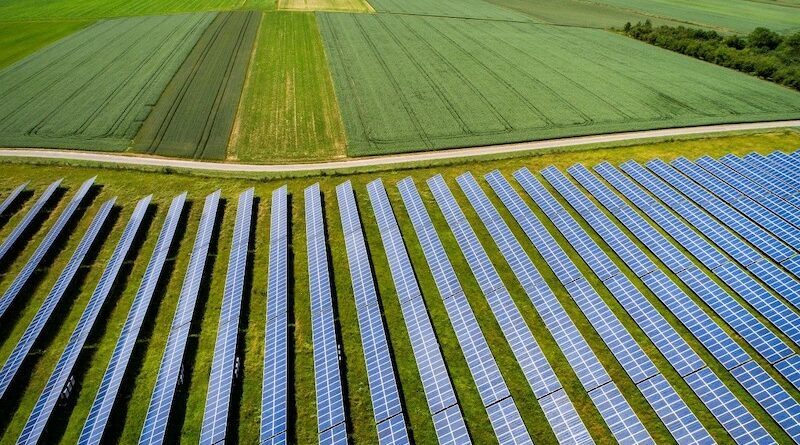
How the energy crisis laid bare Europe’s technology deficit
Vladimir Putin has intentionally used energy as a weapon since the beginning of the war in Ukraine.
A curse that has turned into a blessing for the acceleration of the European energy transition. Leaders have finally woken up to the urgency of finding sustainable fossil fuels alternatives. The recent EU’s Digitalisation of Energy Action Plan (DoEAP) has been both a strong reminder and a great recognition of the crucial need for collaboration between the energy and the digital sectors.
An efficient and sustainable energy ecosystem is not only the backbone of the European Green transition, but it is also a fertile soil for new business models to sprout.
In fact, GreenTech is one of the most promising growth areas in the innovation space and it is a market that can attract a massive amount of investment. In 2022, European startups in the GreenTech space raised just over €1.2 billion. Six out of 9 companies that have made it to our 2023’s Future Unicorn Award shortlist operate in the green tech sector.
However, there are three major challenges to overcome if we are to achieve energy sovereignty and a complete green transition.
Data sharing and legal bottlenecks
No potential of digital in the energy and green transition can be unlocked without data. Data is essential for measuring, monitoring, predicting, innovating, and much more. Importantly, we need access to data as you cannot reduce nor improve what you cannot measure.
As EU policymakers quicken up the pace of their work on the Data Act proposal, let us admit that no one really knows what its effects will be. Before rushing to force widespread data sharing onto businesses that are already reeling from an enormous number of digital regulations, it is crucial to take the time to test-try those rules in real-world market conditions, also known as pre-regulatory sandboxing.
For businesses to be fully on board and for investors to step up funding, they need solid reassurances that trade secrets, security and privacy will be taken seriously. Effective safeguards to prevent data misuse and unfair competition should be part of the Data Act.
Lack of established tech infrastructure and skills gap
For digital to be effectively used as a major driver of the energy and green transition, it requires resources. That includes ICT infrastructure and specific skills which are both currently lacking in Europe.
Enabling access to troves of data will fall short if it is not able to move quickly or if it is not able to be processed. This is where the importance of connectivity and ICT infrastructure comes into play. For example, without WIFI or 5G on a manufacturing site, data would not be able to be collected or shared in real-time to enable systems and operators to make decisions that save energy and resources. In fact, 5G is expected to reduce Green House Gases emissions by 85% (per unit of data transmitted) compared to current 2G-4G networks.
Skills are another major barrier to unlocking the full potential of digital in the green transition. Many of the most alarming shortages are in the roles key to the digitisation of the energy ecosystem such as cybersecurity,
AI and big data analytics. In 2019, more than half of EU enterprises that recruited or tried to recruit ICT specialists had difficulties in filling vacancies and the situation has only worsened by now. Data cannot flow securely without skilled cybersecurity staff and cannot be efficiently and quickly processed to inform critical decisions, without key specialists such as data scientists.
Weak Investment framework
In green tech, Europe is more ambitious than any other region on targets for cutting down on CO2 emissions by 2030 but is losing ground in attracting investment. The rigid regulatory environment does not help to lure regional and global investors. Last week, European Commission president Ursula von der Leyen announced a new bill to give Europe’s green tech industry a boost at the World Economic Forum in Davos. Yet, as little to no information about funding sources have been shared so far, it is safe to be sceptical at a time when the US has committed to over $369 billion to boost the green tech industry, while China, Japan and India have been substantially upping their investments in the sector.
Moreover, out of the over €700 billion made available through the Recovery and Resilience Facility (RRF), only €100 billion has been disbursed. The funds are available, yet they remain difficult for Member States to access.
The digitalisation of the energy ecosystem and the twin transition more broadly will shape Europe’s ability to be increasingly independent from foreign actors, shift to renewables and become resilient.
However, technological autonomy is compatible with open economies and global collaboration. The EU should not act in silos to achieve its climate targets and lead on green tech. It should rather rely on solid alliances with like-minded regions to source critical materials such as semiconductor chips. It should also lead on harmonising multilateral industry standards to attract investors and lure the world’s top-notch talent.
The above-mentioned obstacles could jeopardise the EU’s future economic growth and strategic ability. The good news is that it only takes a few trade-offs to be made for the sake of technological innovation and competitiveness to make Europe catch the technological wave in time.




